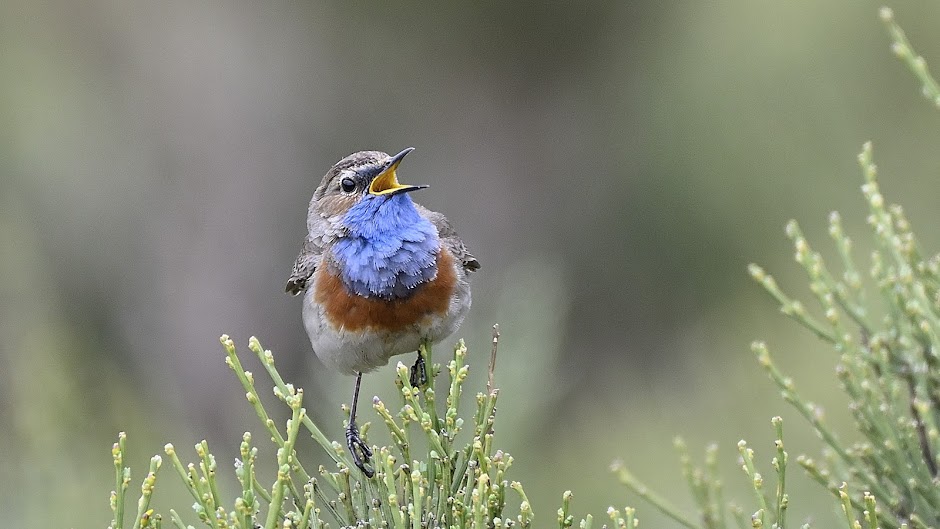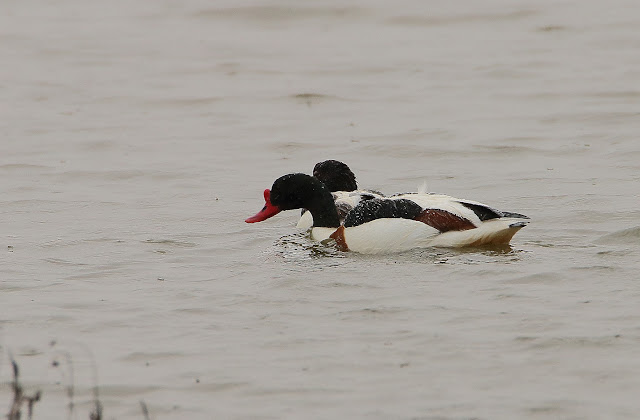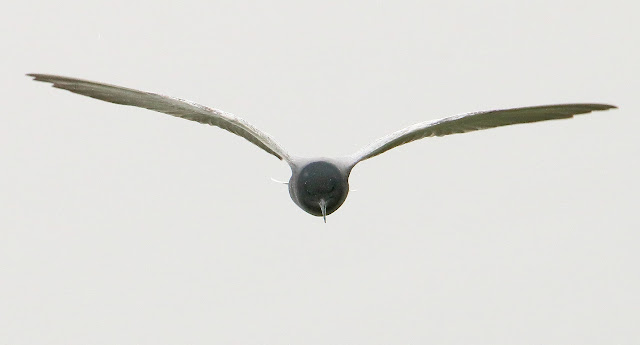Hola otra vez.
Hello once more.
En esta entrada he incluido dos viajes uno a Asturias y el otro a la Mancha Húmeda durante la primera quincena de mayo.
In this post I has included two trips one to Asturias and the other to the Wetlands of la Mancha during the first half of May.
En Asturias tuvimos la suerte de observar un gran paso migratorio de limícolas y muchos de ellos en plumaje nupcial.
In Asturias we were fortunate to observe many migratory Shorebirds and many of them in breeding plumage.
En La Mancha Húmeda lo más destacado fue ver tan de cerca varias especies y también una pareja de fumareles comunes (Chlidonias niger).
In wetlands of La Mancha highlight was seeing so closely several species and also a pair of Black Terns.
El tiempo en Asturias fue estupendo y en La Mancha ya se aprecia en las fotos la lluvia que nos acompaño durante la jornada.
The weather in Asturias was great and in La Mancha you can apreciate in the photos the rain that accompanied us during the day.
Asturias:
Asturias:
Reyezuelo listado (Regulus
ignicapillus).
Firecrest.
Macho de verderón común (Carduelis chloris).
Male of Greenfinch.
Los petirrojos europeos (Erithacus
rubecula) estaban muy nerviosos con la reproducción.
European robins were very nervous with their breeding.
Me gustan mucho las flores de las magnolia de hoja caduca.
I really like flowers of deciduous magnolia Trees.
Chochin común (Troglodytes
troglodytes).
Winter
Wren.
Arte y aves.
Art and Birds.
Colirrojo tizón (Phoenicurus
ochruros) macho.
Male of Black
Redstart.
Macho de colirrojo real (Phoenicurus
phoenicurus).
Male of Common
Redstart.
La hembra estaba finalizando la construcción de su nido. Buena suerte.
The female was ending the construction of her nest. Good luck.
Busardo ratonero (Buteo
buteo).
Common
Buzzard.
Cormorán moñudo (Phalacrocorax
aristotelis).
Shag.
Gaviota patiamarilla (Larus
michahellis).
Yellow-legged
Gull.
Gallineta común (Gallinula
chloropus).
Moorhen.
Uno de sus pollos.
One of its chicks.
Urraca (Pica pica).
Magpie.
Vencejo común (Apus apus).
Common
Swift.
Garceta común (Egretta garzetta).
Little Egret.
El único correlimos gordo (Calidris
canutus) que vi.
The only Red Knot I saw.
Empezando por la izquierda chorlitejo grande (Charadrius
hiaticula), correlimos comunes (Calidris
alpina) y el más claro un correlimos tridáctilo (Calidris
alba).
Starting from left Ringed Plover, Dunlin and the whitest is a Sanderling.
Correlimos comunes (Calidris alpina).
Dunlins.
Eran los más abundantes.
They were the most abundant.
Correlimo tridáctilo (Calidris
alba).
Sanderling.
Vuelvepiedras común (Arenaria
interpres).
Turnstone.
Preciosos con su plumaje nupcial.
Beautiful with their breeding plumage.
Archibebe común (Tringa
totanus).
Common
Redshank.
También había un gran paso migratorio de chorlitos grises (Pluvialis
squatarola).
There was also a large migratory stopover of Gray Plovers.
Entre los chorlitos grises (Pluvialis squatarola) se podían ver algunas agujas colipintas (Limosa lapponica).
Among the Gray Plovers it could be seen some Bar-tailed Godwits.
Preciosa ave.
Beautiful Bird.
Un grupo de zarapitos trinadores (Numenius
phaeopus) y agujas colipintas (Limosa lapponica).
A flock of Whimbrels and Bar-tailed Godwits.
Charrán patinegro (Sterna
sandvicensis).
Sandwich
Tern.
Correlimos oscuro(Calidris
maritima).
Purple
Sandpiper.
Chorlitejo grande (Charadrius
hiaticula).
Great
Ringed Plover.
Como ya os había dicho esta segunda parte corresponde a un viaje a la Mancha Húmeda.
As I had already said this second part corresponds to a trip to wetlands of La Mancha.
Zampullines cuellinegros (Podiceps
nigricollis).
Black-necked
Grebes.
Que bonitos son.
They are beautiful.
Zampullín común (Tachybaptus
ruficollis).
Little
Grebe.
Papamoscas cerrojillo (Ficedula
hypoleuca) macho.
Male of Pied Flycatcher.
Papamoscas gris (Muscicapa
striata).
Spotted
Flycatcher.
Conejo europeo (Oryctolagus cuniculus).
European rabbit.
Andarríos chico (Tringa
ochropus).
Green
Sandpiper.
Un gran nido de cigüeña blanca (Ciconia
ciconia).
A huge nest of White Stork.
Carricero común (Acrocephalus scirpaceus).
Reed Warbler.
Tarros blancos (Tadorna
tadorna).
Common
Shelducks.
Avefría europea (Vanellus
vanellus).
Northern
Lapwing.
Pato colorado (Netta
rufina) macho.
Male of Red-crested
Pochard.
Una pareja.
A pair.
Hembra de porrón europeo (Aythya
ferina).
Female of Common
Pochard.
Macho de ánade friso (Anas
strepera).
Male of Gadwall.
Un macho de malvasía cabeciblanca (Oxyura
leucocephala) dándose un baño.
A male of White-headed Duck taking a bath.
Hembra.
Female.
Focha común (Fulica
atra).
Common
Coot.
Gallineta común (Gallinula
chloropus).
Moorhen.
Macho de aguilucho lagunero occidental (Circus
aeruginosus).
Male of Eurasian
Marsh Harrier.
Hembra.
Female,
Un águila calzada (Aquila
pennata) fase oscura hostigando a un aguilucho lagunero occidental (Circus aeruginosus).
A Booted Eagle dark phase harassing a Eurasian Marsh Harrier.
Águila calzada (Aquila pennata) fase oscura.
Booted Eagle dark phase.
Su pareja fase clara.
Her partner pale phase.
Ánade azulón (Anas
platyrhynchos).
Mallard.
Un flamenco común (Phoenicopterus
ruber) inmaduro anillado con anilla azul con leyenda E:DVV.
An immature of Greater Flamingo ringed with blue ring with legend E: DVV.
Adultos. El de la derecha también estaba anillado pero no pude leer la inscripción.
Adults. The on the right was also ringing but I could not read the inscription.
Y con estas fotos de fumarel común (Chlidonias
niger) me despido de todos vosotros hasta la próxima entrada. Una pena que hiciese tan mal día y las fotos no sean mejores.
And with these pictures of black tern I leave you all to the next post. A pity that made such a bad day and the photos are not better.
Hasta pronto.
See you soon.


































































































No hay comentarios:
Publicar un comentario